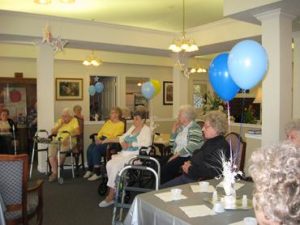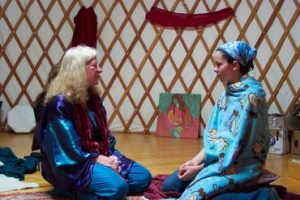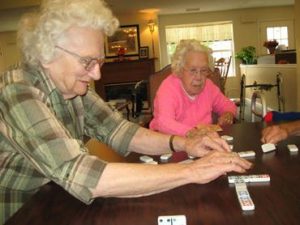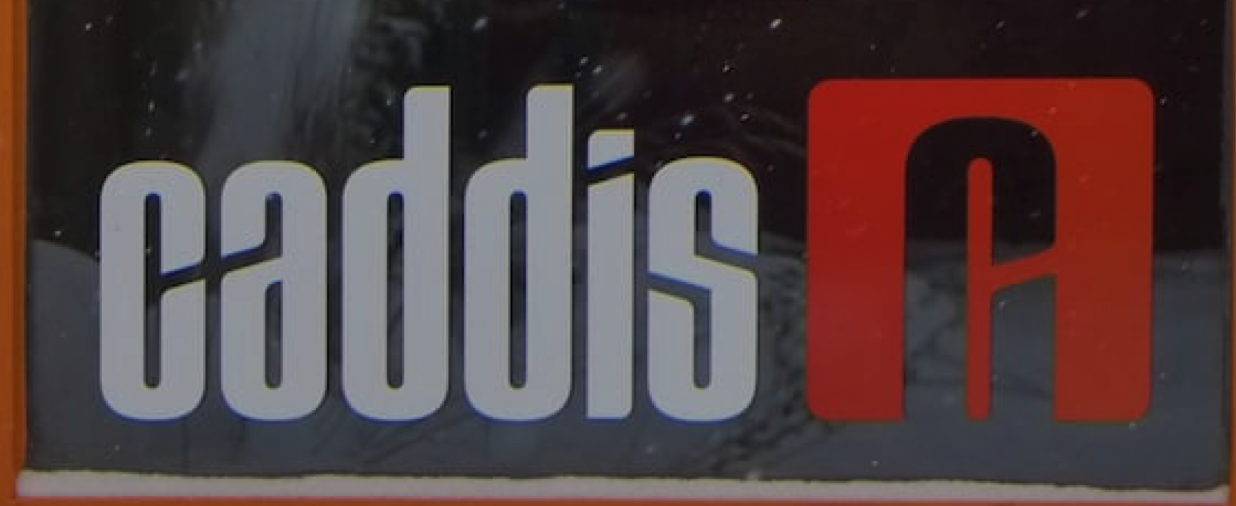Author: Dianne G. Brause
Published in Communities Magazine Issue #149
Last December, I turned 65; my father died at 89; and my mother, at 92, fell and went into an assisted care facility back in Ohio where I grew up. For the last five years I have been back and forth from the intentional community I cofounded in 1989 in Oregon and my birth community in the fertile farmland of rural mid-central Ohio, attending to my parents and cleaning out the large house my father built when I was a young child. Almost every day for the past two years, I have visited one or the other parent at Carlisle House, the assisted care facility where they each have been living. (My mother refused to join my father there while he was alive and swore that she “wanted to die at home” and “would never go there.” Unfortunately, she is now there with a memory gradually becoming less acute due to dementia, and with a near-total deafness which she refuses to correct with hearing aides.)
These experiences over the past few years have put the whole issue of Elderhood in my face—sometimes more graphically than I would like—while definitely allowing me to ponder what it means to be growing older within my various and diverse circles.
* * *
In my intentional community, I was often both the oldest person there, and the person with the most seniority. Over my 20 years there, I wrote a variety of “treatises” on how I thought we ought to deal with the issue of our older members. Unfortunately, we were always underfunded, barely able to support all of our members with the simple necessities of life, let alone think clearly about how to provide for those people who had contributed and were getting older, so mostly my thoughts were ignored.
I assumed that when the time came, we would either be better off or at least willing to find a cooperative way to support one another in this particular life phase, as we had for members going through birth, death, marriage, miscarriage, accidents, and emotional traumas in the early years. For myself, I always assumed that I would at least be able to stay there within the home I had bought and paid for with money saved in my prior life. My dream from the very beginning was to always have my little home there—regardless of whether I was contributing on the property or doing the international traveling and service that I often felt called to do throughout the years. I secretly imagined my fellow community members would be delighted when I was on the land, offering the wisdom that I had garnered over the years, and would also celebrate my desires to explore and experience other parts of the world, knowing that I would return with more stories to tell and gifts from other peoples and cultures.
Unfortunately, that is not what happened (at least in my mind). While I was spending more time in Ohio with my ailing parents and gradually letting go of my responsibilities in the community, the membership changed and the focus seemed to shift from a strong ethic of community cooperation and friendships to a greater focus on bureaucracy, efficiency, and money-making. People seemed less important than the product they could produce. Consensus suddenly was too cumbersome and a waste of time and decisions were made by an inner circle in a process not necessarily understood by the people living there. At times it seemed as if people relatively new to the community were making decisions affecting those who had been there much longer than they had, sometimes without prior knowledge and agreement of the full community or even the full membership of the community. The need for an Elder’s Policy was acknowledged, but the now-smaller (and better-paid) “staff” never seemed to find any time to actually get around to writing one.
During this period, many of the “old-timers” gradually left and found other places to offer their services and create communities of friends and “families of choice.” No one quite felt the strength to fight for the “good old ways” or to invest what it would take to negotiate the waters of finding a middle ground between the traditions and the new ideas. On my part, I didn’t really feel great about the changes, but I also knew that I personally didn’t have the stamina, while also dealing with my parents 2000 miles away, to stand up for what I thought was perhaps a better way to make the changes. In addition, I had begun a Ph.D. program and needed a sense of focus in order to do the work necessary to complete 12 intensive classes and write a scholarly dissertation at the same time. I was saddened to feel that I needed to sell my home and car and store my belongings with a friend in town, rather than to feel the support and joy of the people who were in fact receiving the benefits of the work and sacrifices that I had made for two decades to fulfill a vision that many of us held over many years.
I experienced many emotions over this time, often feeling that I (and we as a community) had failed to honor our elders, and in fact were treating our senior members in a manner similar to the dominant society. This was especially ironic to me in that we had been founded to offer a model which was more humanistic and honoring of the needs of the group, living simply so that all could benefit! I was disappointed that just as the general culture was beginning to feel the need for what we uniquely had to offer, we seemed to be going in the opposite direction to become more “corporately minded”! I do not know if the new group in power has struggled with the difficult issues of elders since I left, but I rather doubt it—as it seems hard to tackle issues that are not immediately being encountered.
I have visited a few intentional communities that have “gotten their act together” around their elders. My observation is that these tend to be communities on the more egalitarian end of the spectrum—whose very charter has to do with meeting the needs equally of their members—or those that started out with more prosperous (and perhaps older) members in the formative stage. Others have seemed to crumble over the struggle to deal with aging members who tend to have more needs but less energy to contribute (at least with physical labor). I know that some cohousing groups are specifically set up just for older people, a sort of alternative retirement community model. I think this might be a good option, although I personally favor the positive effects of having members of all ages, since I believe that both elders and children can benefit a huge amount from knowing one another intimately.
* * *
Meanwhile, back in my conservative farm community, I am re-experiencing the pluses and minuses of this lifestyle, especially for the elders of the area. The biggest plus, I think, is that people have known each other for generations. For example: in the assisted care facility where my father died and my mother now lives, which is located at the edge of the county seat and 10 miles from my farm and the tiny village I called home for my first 19 years, three of the elders were residents who had been in my father’s confirmation class and three had graduated together from high school (in 1938!). My 102-year-old Latin teacher is there, as are my Aunt and the wife of my father’s best man at his marriage! Even the residents who did not directly know each other earlier, generally know something about each other’s families, churches, or whatever. Clearly there is community here. Every month there is a special dinner for family of the residents, as well as a community dinner where anyone who wants to learn more about the place—as a possible option for themselves or their family members when the need arises—is invited to join in for food and entertainment.
Almost every day I go in for dinner with my mother and sit on the corner of a table with three other women. After eating, if there is not another scheduled activity, I generally play dominoes with whoever wants to join in. Although each woman has her own physical and/or mental challenges, I encourage all to participate. And amazingly, they have been able to find allowances for each other in generally loving ways. My mother, who cannot hear at all, is still able to play a pretty sharp game—because she can see well and is still able to interpret the overt and subtle cues that have developed among the group. Several ask at the beginning of each game, “How many dominoes do we take?, ” and another asks which way the turns go around the table. One asks, “What is the name of this game?,” and she persists each day saying “I don’t believe I’ve ever played this game.” Then she joins in and wins several games per night! Those who can’t see well enough to be able to identify the number of dots are helped by their neighbors. Only one of the “regulars” makes nasty remarks about the others’ disabilities.
In the broader community, the level of support for people in health, economic, or other crises is quite remarkable. If a family is in particular need, often the community comes together to create a benefit event, usually including food, auction items, a raffle, and entertainment. Usually this doesn’t pay all the bills or rebuild the burned-down house, but it certainly helps people to feel the support of the community—as does the daily food dropped off at the house or the offers of shopping, childcare, or whatever.
Here in the farming community, people tend to work beyond anyone’s expectations. Many of the farmers continue to get out on their tractors well into their 80s—often because they have no heirs willing to take on the farming lifestyle. Their wives continue to garden, tend to their chickens, and go to church quilting parties until they can practically no longer move their arthritic hands or see the stitches—and then they come to stuff pillows or just “hang out” learning the latest local gossip. These elders are respected and honored for their lives and contributions.
Here, people don’t often pull up stakes and leave because times get hard or they don’t particularly like their neighbor across the field, as members in intentional communities are apt to do. For one thing, they have invested in the land and community for many decades and it is hard to just pick up and leave when times get tough.
It is fascinating to watch the people in the assisted care facility as they gradually weaken and come to their final days. I have observed that more often than not, people tend to live their last days much the same as they have lived most of their lives. Those who are “complainers” tend to go to their grave complaining, and those who like to see the glass half full rather than half empty tend to take whatever cards they are dealt in a cheerful way. Two people with essentially the same diagnosis and discomfort levels may have wildly differing ways of presenting themselves to others, and the reactions they get from others are quite different as well, among both their fellow residents and their visitors and family members. Some of the residents have no family left—or none within visiting distance. Fortunately, the staff, the other residents, and family members of other residents often go out of their way to make them feel at home and loved.
Of course, life is not perfect there by any means, and given the choice, I would prefer to live in one of the many intentional communities that I am aware of in the US. In most of them, I believe I would be welcomed for the many years of experience I have under my belt and as long as my mind remained more or less intact (and perhaps if I had enough financial abundance to “carry my weight”). I would hope that the wisdom I have garnered over the years would be honored and appreciated—as long as I was able to impart it as a gift to be received, with no strings attached.
In fact, I have a dream of getting a VW pop-top camper, equipped with solar panels for my computer, cooking needs, etc., after my Mom passes, and take off across the country visiting old friends, new friends, and communities I have wanted to visit for decades, offering my being as an elder in exchange for a place to park, perhaps some food, and the fine company of fellow communitarians! So far, I am fairly fit and could also offer physical labor part of the day in exchange for my room and board. My guess is that it would generally be a win-win situation and hopefully I would know (or be gently told) when it seemed time for me to move on.
An alternative to this dream—or perhaps an addition—is for me to do some extensive international travel, visiting places I love and those I’ve never seen before—again offering my self and my services freely in exchange for living in a similar manner to the local people. Just out of college, I joined the Peace Corps and learned to save money on my 19 cents per hour “salary,” and in some ways I’ve continued to live very simply (some would say frugally) my whole adult life. Reduce, re-use, recycle has been a way of life for me long before it came into vogue and “ecology” became a common word in our culture. I like to challenge myself to do the opposite of the American ethic of buying more, bigger, and better. If I can possibly keep from buying anything newly made or recently extracted, I try to do so—not fanatically so, but as a general intention. I try to acknowledge that when I put BP gas into my car, or throw away a newly purchased plastic bottle of water, or even buy a new pair of sneakers at a chain store, I am a part of the problem—one of those who are consuming much more than my share and adding to the destruction of the planet. This doesn’t mean that I necessarily beat myself up or even stop doing those things entirely, but as an elder, I believe that my actions count—and often become a model for those younger than myself.
In addition, when I am traveling abroad, I notice how amazed local people are to see an “American” who does not fit the stereotype seen on all the popular media. To discover an American who is willing to live more like them (on a simpler scale) makes a huge impression, and, I believe, leads toward more peace and understanding than many words and signed treaties! So in my international travel, I hope to be seen as a Peace Pilgrim, just by the way I act, and to be a welcome guest within many humble homes (as I already have been on many occasions in my sojourns). Of course, in many parts of the world, generosity is the name of the game—by the poorest and humblest families and communities—and elders are fairly universally respected and honored, as long as they stay within certain mores within the culture. Back when I was a young curvaceous red-headed and light-skinned international traveler, I had to fend off a fair number of potential suitors, looking for love, money, prestige, or a free pass to America. Now, I find that with my white hair (and more conservative dress), I am more likely to get offered a lift in a car or help with my suitcase than encounter someone “coming on” to me or a whistle in the street. Truly, there are some advantages to getting “old”!
So, as you can see, I’m pretty excited about being an elder. And I am equally excited about the prospect of soon becoming “homeless”! I have enormous trust that the universe will supply me with my needs (although not necessarily what I expected). My intuition warns me that massive changes will be happening over the coming few years and that whatever the 2012 predictions really mean, all of our planning and desire to control the future will not result in our being in charge of what actually happens. On the other hand, I trust that wherever I am, I will be able to utilize some of the skills and knowledge that I have gained through my first 19 years living in a frugal farming community in Ohio and the recent 19 years living within an intentional community dedicated to simple living and cooperative interactions among people. I have great appreciation for each of these cycles of my life and each day discover more about the strengths that each one has given me—despite whatever difficulties and hardships I had to face along the way.
May you each enjoy your elderhood as it comes your way.
* * *
I dedicate my article in memory of Jamshed Storer, my Sufi friend and the “Spiritual Elder” of Breitenbush Community, who passed away in early October. Jamshed and I always talked about how it was to be the “Elder” of an intentional community; compared notes on how our respective communities were doing; and considered ourselves as brother and sister on the spiritual path. He was a teacher and a beloved friend, whose love was boundless. I am feeling his presence and the goodness of his being in my heart and I will miss him greatly, even though we didn’t often see each other.
This article is accompanied in our magazine by the sidebar: Further Thoughts on a Community’s Changes.
























lonegreyrabbit
i am interested in intergenerational community with the intent that it would be a long term commitment. in which case, it seems some serious thought needs to be given as to how to put to use abilities and talents of all it’s members. plans for aging should be put in place when the community forms. most retired people and many in nursing homes are still capable of contributing in some ways. i like the green house plan in the eden alternative started by dr. william thomas which could be a part of a community or of several nearby communities in cooperation.
i have been retired for almost 5 years but think i am still able to hold my own as far as being useful despite some physical limitations and a not so good memory. when i am no longer able to take care of myself mentally and/or physically, i don’t want to be stuck away in a depressing institution and drugged to keep me passive.
danaellyn
excellent article